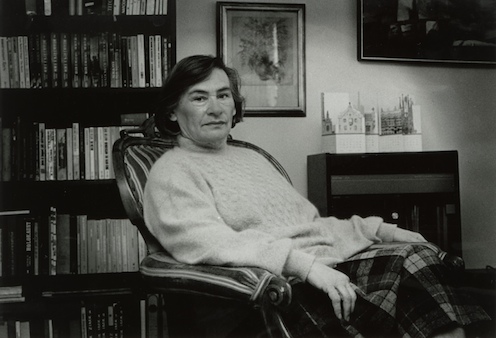Greta Ferusic

Full Description
From Auschwitz to the siege of Sarajevo, Greta Ferusic's story envelops twentieth-century politics. Deported with other Jews from her border town of Novi Sad at age 19, Greta was the only one of her family to survive the Holocaust. After the war, she studied architecture at the University of Sarajevo and was the first woman to graduate. Later she became the Architecture School's first female dean. When the siege of Sarajevo began in April 1992, Greta and her husband were determined to stay. Refusing to be dislocated once more, they shared in the fate of their city. Pasovic's camera meditates on eerily beautiful, bombed-out municipal buildings and the freshly established cemeteries that permeate Sarajevo - 10,000 citizens died in the war. Under dramatic and difficult circumstances and with a very small budget, Haris Pasovic has crafted a courageous film that takes its place in the impressive body of work created by Sarajevan artists during the siege.
Filmmaker Bio(s)
Director/Producer Haris Pasovic was the director of the International Theater and Film Festival MES Sarajevo during the siege. He was the director of the first Sarajevo Film Festival in 1993. Before the war he was a prominent theater director in the former Yugoslavia and a professor of film and theater directing at the Performing Arts Academy in Sarajevo.
"The idea for the film Greta Ferusic originated in the Summer of 1995, three years into the siege of Sarajevo. During 1996 and 1997 Greta Ferusic was filmed in Sarajevo, Auschwitz, Paris and Jerusalem. Most of the people on the creative team have spent a few years in the besieged city of Sarajevo and have brought these experiences into the making of the complex film structure of Greta Ferusic. It wasn't an easy film to make and it is not an easy film to watch."
Script writers and researchers Nihad Kresevljakovic, Lejla Pasovic and Editor Almin Karamehmedovic are the young people from Sarajevo who have worked at the Festival MES Sarajevo during the 1992 - 1996 siege of the city. They spent most of the time in the city under attack. Cameraman Christian Bushill, from London, has worked in the war-torn region of the former Yugoslavia for a couple of years.
The production companies, Sarajevo International SAINT, based in Amsterdam, and Festival MES, based in Sarajevo, publish books, and produce and present films and theater. In 1993 Festival MES organized the first Sarajevo Film Festival. In spite of the ongoing siege and constant bombardment, Festival MES presented 140 films. During the siege of Sarajevo, the Festival MES has also produced the theater productions of "Waiting for Godot" by Samuel Beckett, directed by Susan Sontag; "In the Country of Last Things" by Paul Auster; "Silk Drums" - the Noh pieces directed by Haris Pasovic'; and "Circus" by Peter Schumann.
Director(s)
Country(ies)
Language(s)
w/English Subtitle
Release Year
Festival Year(s)
Running Time
86
